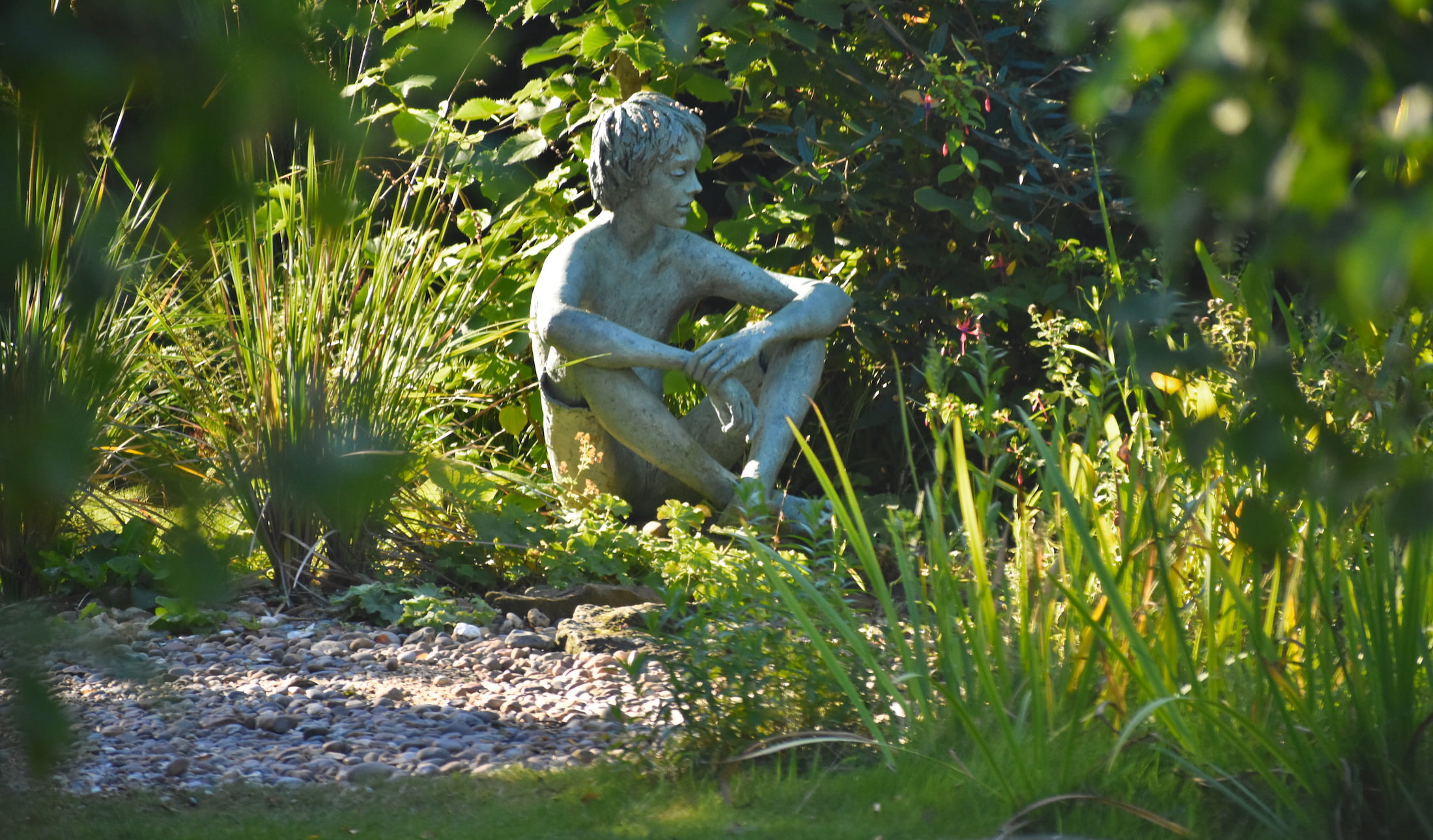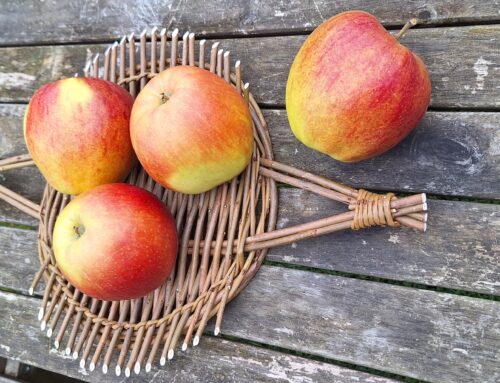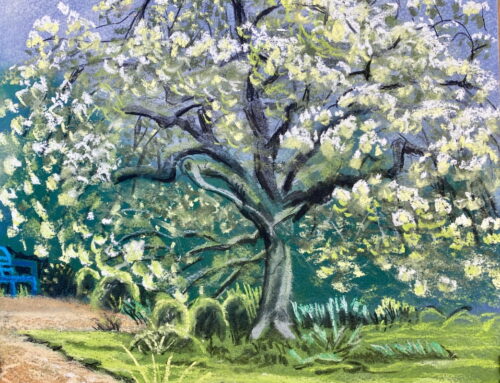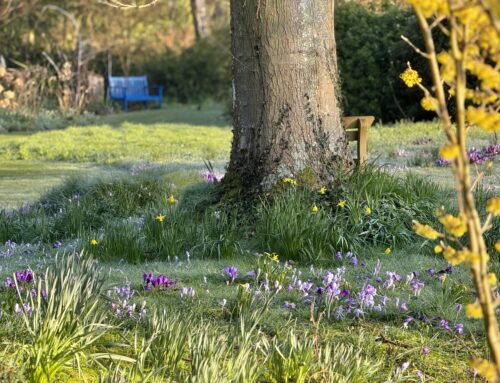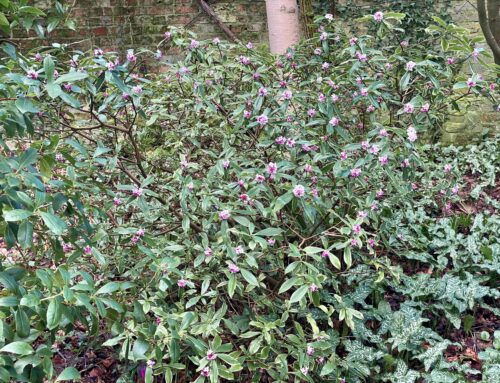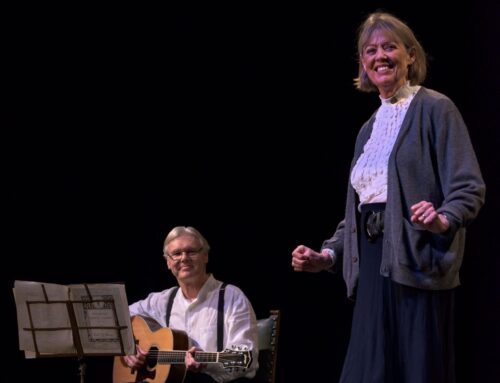One of the partners we have been lucky enough to work with over the past couple of years is the London College of Garden Design and this autumn one of LCDG’s short two-day courses which focuses on gardens for wellbeing will be held at Denmans (Monday 9th and Tuesday 10th October 2023 10:00 – 16:00). Here we speak to Olivia Kirk, the course teacher who is a Chelsea Flower Show gold-medallist and experienced landscape and garden designer, about her work and what people can expect from the course.
I live in rural Herefordshire with a view west towards The Black Mountains in Wales. My garden is definitely my sanctuary, a little bit wild round the edges and overlooking fields in the main, even though we are in the centre of the village.
When we first moved here 10 years ago the garden was very open with mainly herbaceous planting, no mystery or magic and pretty much nothing in the winter time. I’ve worked hard to create structure in the borders and divide the garden into distinct areas, each with its own character. I have a cutting garden and a veg patch in raised beds behind the greenhouse which is the engine room to the garden. At the lowest point in the garden, we built a pond three years ago which instantly brought so much wildlife into the space as well as reflections and shadows. It’s a lovely lunch spot when the sun is out, proper time out in the middle of a working day.
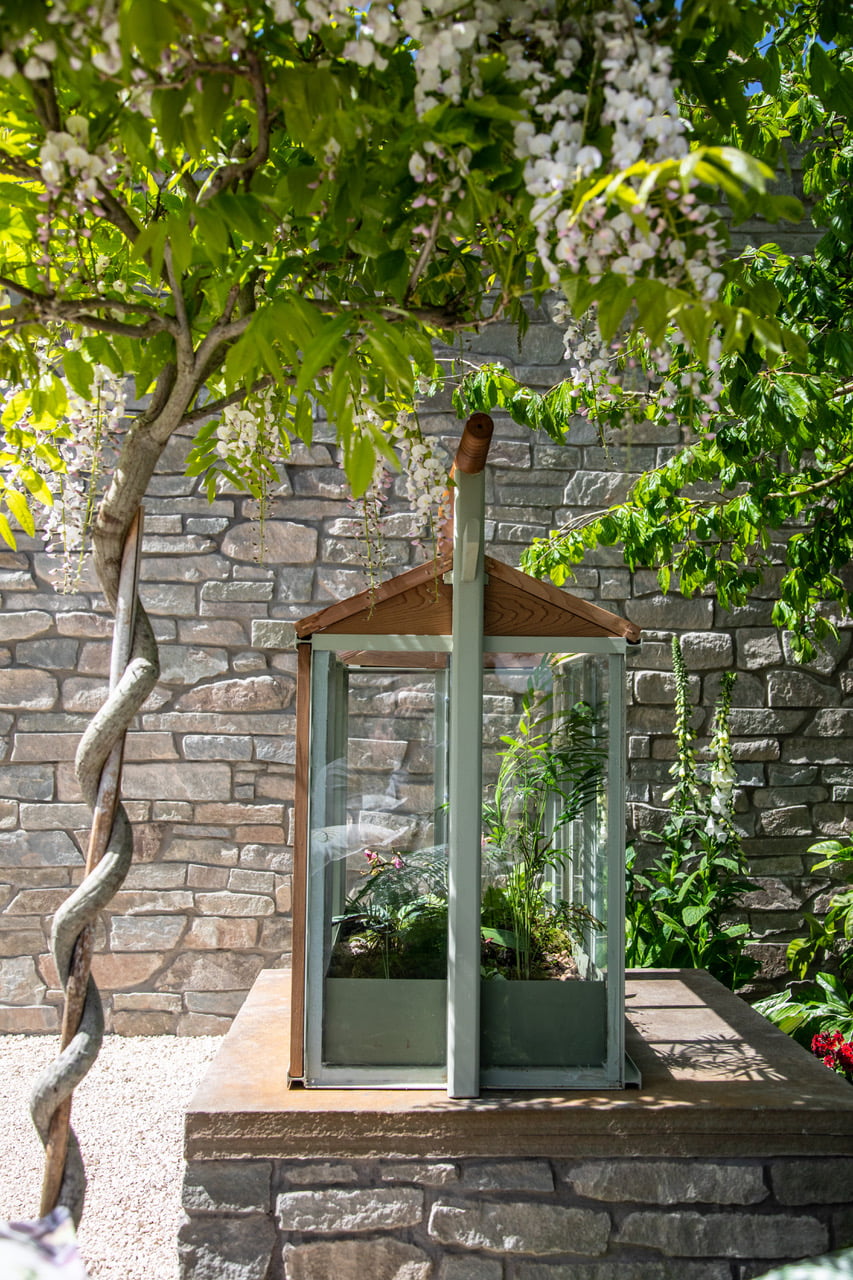
A terrarium in Olivia’s 2018RHS Malvern Spring Festival garden. Photo by John Campbell.
My husband is an architect and when we set up our own architectural business in 2005, I had just embarked on my career-change garden design and horticulture course in Pershore College. We both strongly feel the landscape surrounding a building is every bit as important as the building itself and wanted to bring this ethos to our designs.
When we set up our architectural business we specifically wanted to work with hospices. The modern hospice movement was then approaching 40 years old and generally working out of buildings that were no longer fit for this rapidly expanding area of healthcare. There was a great need for design expertise in this sector and having already worked with St Richard’s Hospice in Worcester on an entire new build hospice surrounded by new landscape we knew this could be an exciting and fulfilling area of work for us.
Hospices are inspirational places to work with, providing specialist care to patients and their families, helping them to live their lives to the full. To be part of this by designing gardens that people love to be in or to look at is a total privilege.
My research has mainly been carried out working with many hospices throughout the UK. Hospices very much serve and work within their local community and are independently run which means each hospice style is individual. The more hospices I work with, along with the Chief Executives, patients, nurses and carers I collaborate with, the more I can bring to the next project.
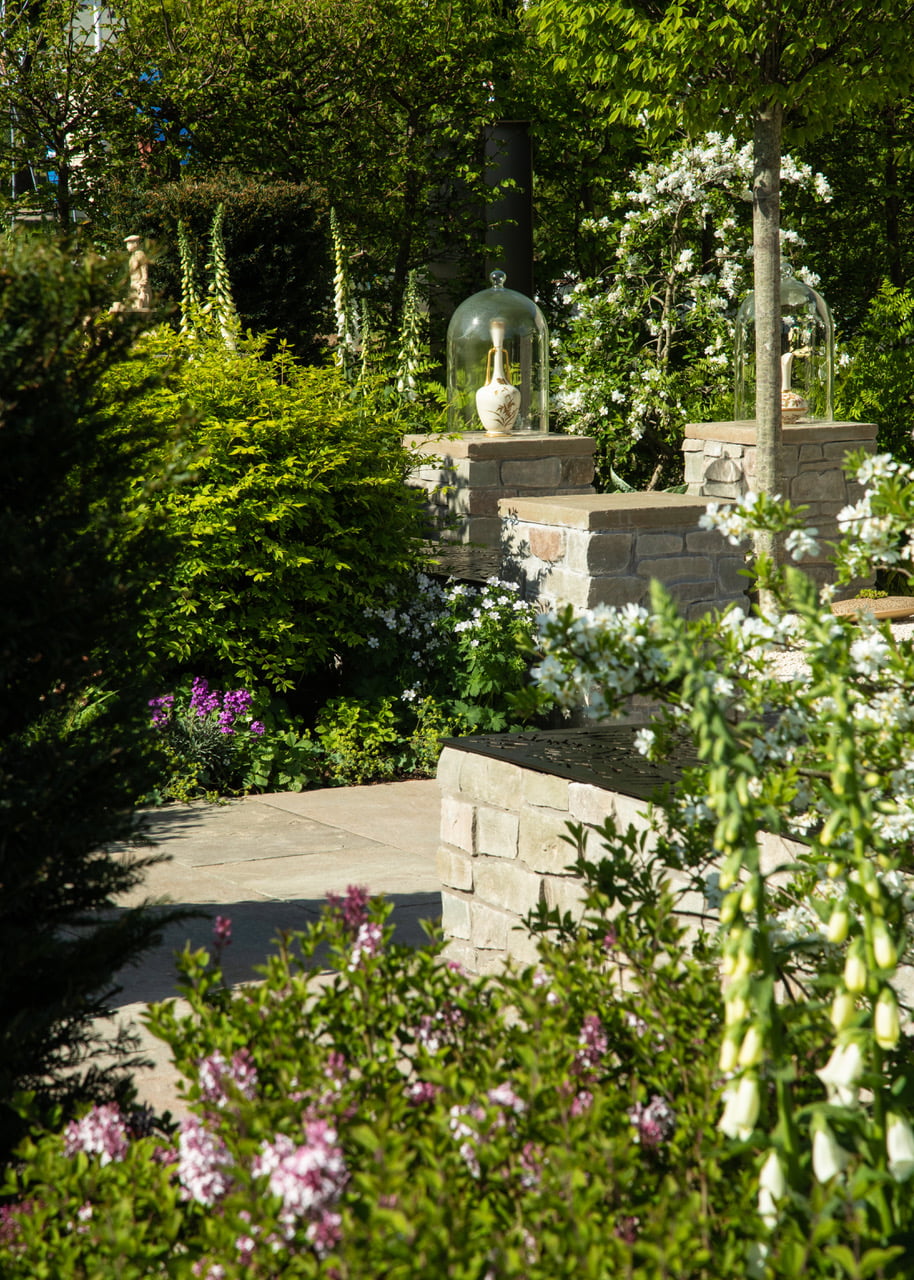
Bell jars featured in Olivia’s 2018 RHS Malvern Spring Festival garden. Photo by John Campbell.
The landscapes of each hospice are so important as they bring a little bit of normality to a situation where the patients and their families can feel vulnerable and out of control. Working with Macmillan Cancer Support has particularly been very helpful as they have innovative ideas on integrating the arts and community into their buildings and landscape designs. Thrive, the gardening for health charity, has a wealth of publications which I have found exceedingly useful, particularly when I have been asked to design landscapes for people with learning difficulties and dementia.
In 2010 I was asked by the University of Worcester to design a garden outside their newly built Pollen Research Unit. This garden was to be a showcase for low allergen planting, demonstrating that these gardens don’t need to be just foliage – a common misconception – that they can also have joyous planting to lift the soul. Having extensively researched this style of planting for this particular garden, I suddenly had a Eureka moment – the planting included in healing gardens can have either a positive or a detrimental effect on the health of the people using the garden.
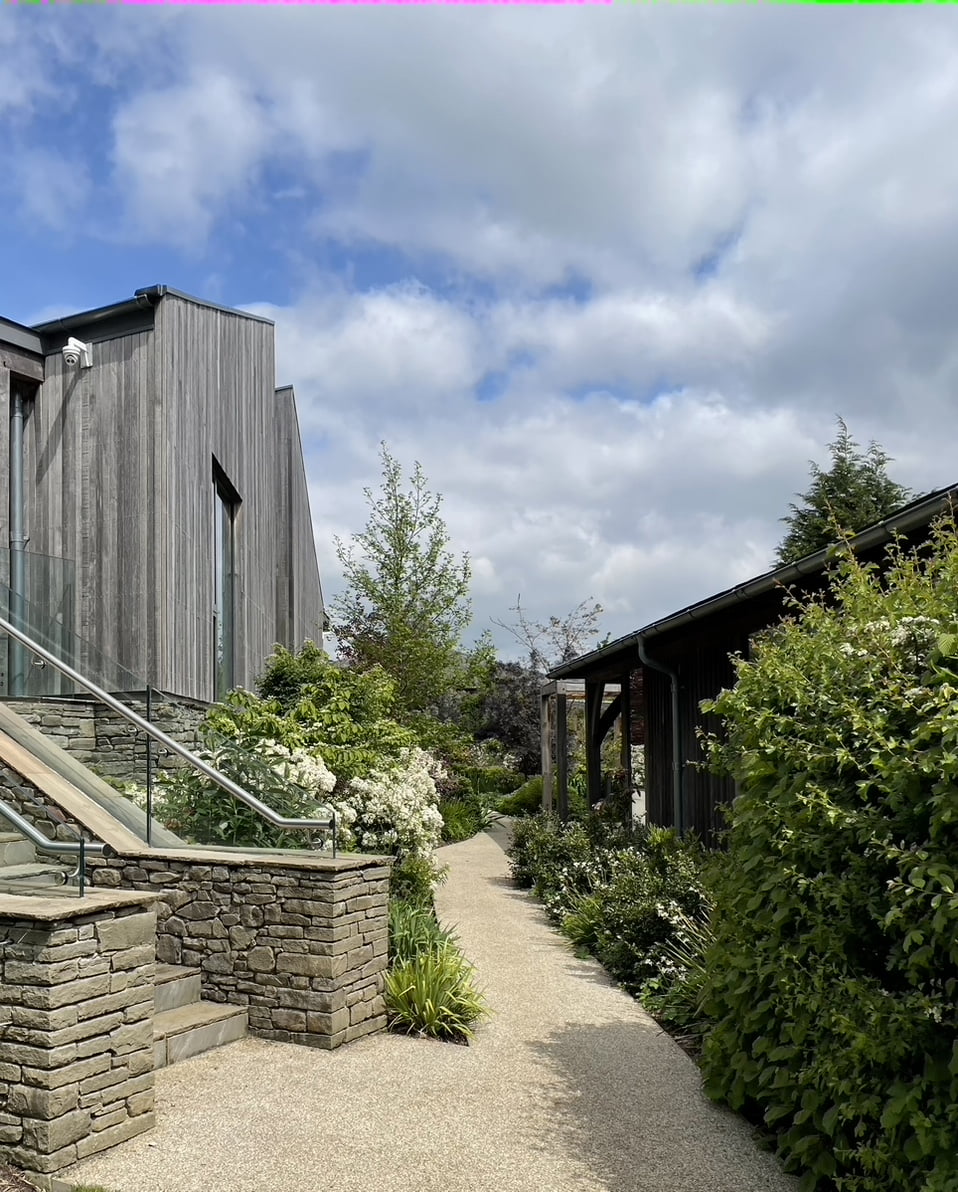
St. Peter’s Hospice.
Why add a layer of discomfort to people who already have weakened immune systems through using plants that can cause hay fever or even worse asthma attacks?
Since this moment, I have strongly advocated this style of planting for any public space, especially as numbers of hay fever sufferers have increased dramatically over the last 50 years.
I think people instantly relax in a human scale space, even more so when the space has definition such as a walled garden. The clever use of proportions and strong geometric shapes at Denmans make contained areas which hold people nicely whilst at the same time giving glimpses into other spaces to encourage exploration at their own pace.
On the course I will be running at Denmans, we will be looking in close detail at the types of healing gardens I have been involved with as well as exploring how our own gardens can help mitigate the stresses and strains of our normal, everyday, far too digital lives.
The second day will focus on planting and designing for a low allergen garden, covering plants and landscape material choices. On both days we will get outside to look at the garden and discuss how we feel in the different spaces, analysing the design and discussing what works for us as individuals. We will of course also take a good look at the inspiring planting and learning to spot the low allergen combinations.
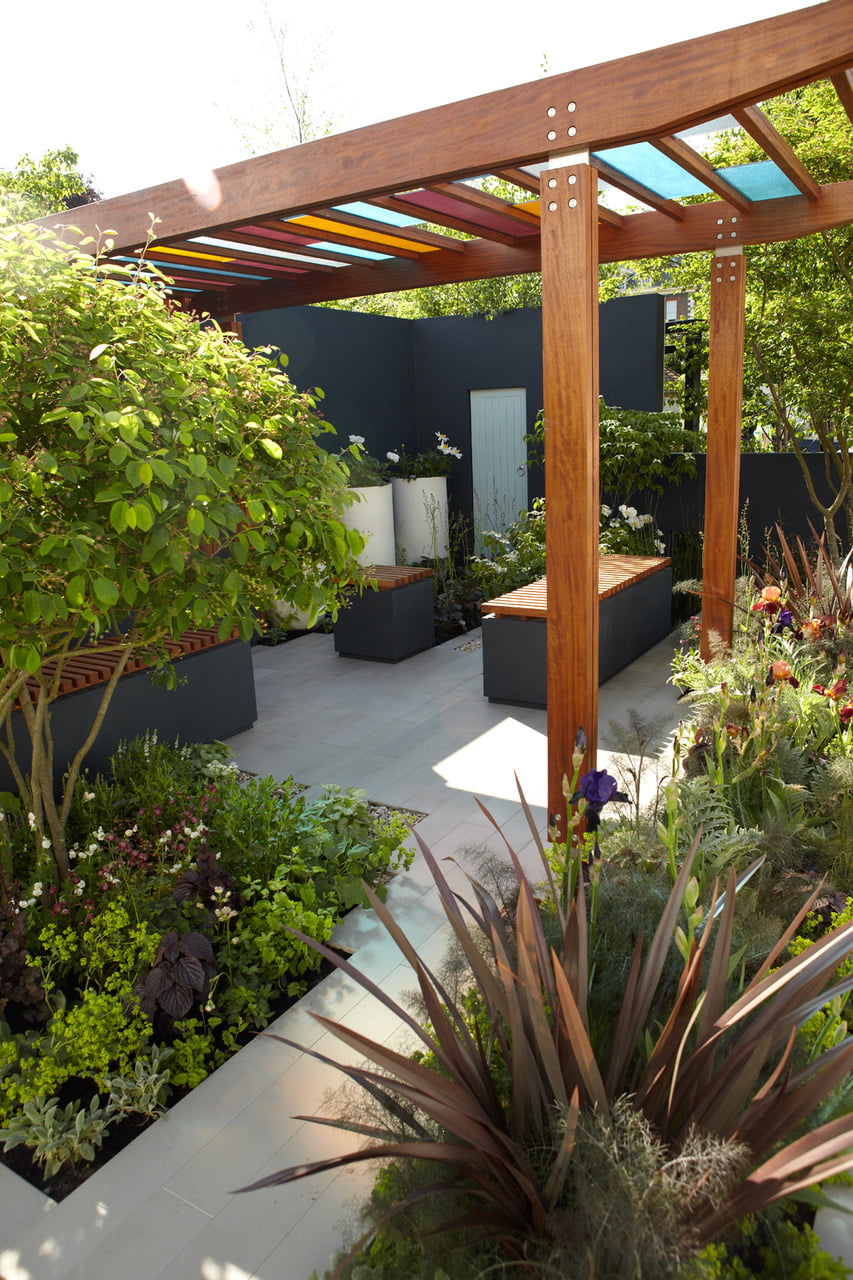
Olivia’s UW Low Allergen Garden at Chelsea.
My career highlight to date has to be receiving a gold medal for The Power of Nature garden at The RHS Chelsea Flower Show. Not only was this a proud moment personally but it gave me the endorsement in my new career that allowed me to believe that anything I want to achieve I can make happen.
As my career has progressed, I find myself doing more teaching and lecture days which means I have come full circle back to my previous life as a musician and teacher. When I decided to change careers to become a designer it was the teaching that I missed but with enough time and knowledge under my belt I now have that last bit of the jigsaw to put into place.
Olivia’s course Gardens for Wellbeing runs on Monday 9th and Tuesday 10th October at Denmans Garden – 10:00 – 16:00 – £270 for 2 days
Included: refreshments and a light lunch
Day 1 Designing Healing and Therapeutic Gardens
Day 2 Understanding and using Low Allergen Planting Design
For more detailed information and to book through the London College of Garden Design:
https://www.lcgd.org.uk/short-course/gardens-for-well-being-denmans-garden-sussex-2-day-course/
For more information about Olivia Kirk go to www.oliviakirkgardens.com
For updates you can follow Olivia on Instagram @oliviakirkgardens
Olivia’s Low Allergen Planting Planner is available here: https://oliviakirkgardens.com/shop

